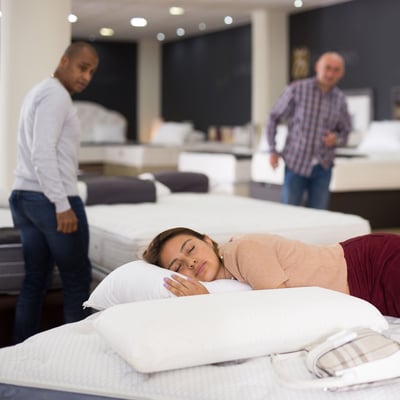1
00:00:03,304 –> 00:00:08,444
Amigos, a pandemia está a afetar toda a gente,
{{Friends, the pandemic is affecting everyone,}}
2
00:00:08,444 –> 00:00:13,084
mas estar fechado em casa não é desculpa para estar parado!
{{but being locked in the house is no excuse to stand still!}}
3
00:00:13,093 –> 00:00:16,876
É certo que hoje em dia, com a internet,
{{It’s true that these days, with the internet,}}
4
00:00:16,884 –> 00:00:20,484
há mil e uma maneiras de nos entretermos.
{{there are a thousand and one ways to entertain ourselves.}}
5
00:00:20,484 –> 00:00:25,044
Já para não falar que mandar vir comida nunca foi tão fácil,
{{Not to mention, ordering food has never been so easy,}}
6
00:00:25,044 –> 00:00:28,984
ainda mais desde que inventaram a Uber Eats.
{{even more so since they invented Uber Eats.}}
7
00:00:28,984 –> 00:00:31,884
Por isso, vamos meter mãos à obra
{{So let’s get to work}}
8
00:00:31,884 –> 00:00:35,084
e falar sobre algumas das opções que existem
{{and talk about some of the options that exist}}
9
00:00:35,084 –> 00:00:38,504
para praticar exercício em casa –
{{for exercising at home –}}
10
00:00:38,504 –> 00:00:41,724
1. Já ouviram falar da calistenia?
{{1. Have you heard of calisthenics?}}
11
00:00:41,724 –> 00:00:46,864
É um tipo de atividade física que envolve pouco ou nenhum equipamento.
{{It’s a type of physical activity that involves little or no equipment.}}
12
00:00:46,864 –> 00:00:52,964
Pesquisem no YouTube que vão logo encontrar centenas de programas apropriados
{{Search YouTube and you’ll soon find hundreds of programs suitable}}
13
00:00:52,964 –> 00:00:56,404
para qualquer idade ou condição física.
{{for any age or physical condition.}}
14
00:00:56,404 –> 00:00:59,004
Uma forma simples de começar
{{A simple way to start}}
15
00:00:59,004 –> 00:01:06,304
é tentarem fazer 20 flexões, 50 agachamentos e 100 abdominais por dia.
{{is to try doing 20 push-ups, 50 squats, and 100 abs per day.}}
16
00:01:06,304 –> 00:01:08,744
Não têm de os fazer seguidos!
{{You don’t have to do them back-to-back!}}
17
00:01:08,744 –> 00:01:11,644
Podem dividir em várias sessões.
{{You can divide it into several sessions.}}
18
00:01:11,644 –> 00:01:15,744
Se for muito fácil, aumentem estes números.
{{If it’s too easy, increase these numbers.}}
19
00:01:15,744 –> 00:01:20,024
Ou, se for muito difícil, façam só metade.
{{Or, if it’s too hard, just do half.}}
20
00:01:20,024 –> 00:01:23,704
(Segunda opção) Dancem!
{{(Second option) Dance!}}
21
00:01:23,704 –> 00:01:26,464
Sim, é uma sugestão estranha,
{{Yes, it’s a strange suggestion,}}
22
00:01:26,464 –> 00:01:30,844
mas dançar é um excelente exercício cardiovascular.
{{but dancing is an excellent cardiovascular exercise.}}
23
00:01:30,844 –> 00:01:33,664
Ponham a tocar a vossa música favorita
{{Put on your favorite song}}
24
00:01:33,664 –> 00:01:36,484
e, como se diz em bom português,
{{and, as they say in good Portuguese,}}
25
00:01:36,484 –> 00:01:39,084
abanem o capacete!
{{“shake your helmet!” (i.e. Dance!, Shake your tail feather!)}}
26
00:01:39,084 –> 00:01:41,664
Saber dançar é opcional.
{{Knowing how to dance is optional.}}
27
00:01:41,664 –> 00:01:45,384
Desde que se mexam, estão a fazer exercício.
{{As long as you move, you’re exercising.}}
28
00:01:45,384 –> 00:01:49,504
(Terceira opção) Experimentem Yoga.
{{(Third option) Try yoga.}}
29
00:01:49,504 –> 00:01:52,924
É uma prática desportiva que diminui o stress,
{{It’s a sporting activity that reduces stress,}}
30
00:01:52,924 –> 00:01:58,064
fortalece os músculos e mantém as articulações saudáveis.
{{strengthens the muscles, and keeps the joints healthy.}}
31
00:01:58,064 –> 00:02:01,504
Aconselha-se que usem um tapete de Yoga.
{{You are advised to use a yoga mat.}}
32
00:02:01,504 –> 00:02:06,644
Se não tiverem, uma toalha grossa ou um cobertor também servem.
{{If you don’t have [one], a thick towel or a blanket will also work.}}
33
00:02:06,644 –> 00:02:11,384
De novo, aqui, o YouTube é o vosso melhor amigo.
{{Again, YouTube is your best friend here.}}
34
00:02:11,384 –> 00:02:15,044
Pesquisem uma rotina de exercícios ao vosso gosto
{{Search for an exercise routine to your liking}}
35
00:02:15,044 –> 00:02:17,964
e toca lá a esticar!
{{and get out there and stretch!}}
36
00:02:17,964 –> 00:02:22,264
Se não conseguirem decidir entre nenhuma destas opções,
{{If you can’t decide between any of these options,}}
37
00:02:22,264 –> 00:02:24,384
podem sempre fazer as três.
{{you can always do all three.}}
38
00:02:24,384 –> 00:02:29,324
Nada melhor do que praticar calistenia, depois dançar,
{{Nothing better than practicing calisthenics, then dancing,}}
39
00:02:29,324 –> 00:02:34,224
e, por fim, acabar com uma relaxante sessão de Yoga.
{{and, finally, ending with a relaxing yoga session.}}
40
00:02:34,224 –> 00:02:35,764
Força nisso!
{{Go for it!}}
 We respect your privacy and have a ZERO TOLERANCE for spam.
We respect your privacy and have a ZERO TOLERANCE for spam.
















Great shortie full of great suggestions for a difficult period for all. (Hopefully coming to an end soon. Portugal is looking really good. We are lagging here in the southwest U.S.)
When the dialogue says, “uma toalha grossa ou um cobertor também servem…,” the verb servir is conjugated in the plural form. In English, the rule for subject-verb agreement is to use the noun closer to the verb when you have a compound subject connected by an “or.” (At least in American English – can’t say I know the rule for the Brits). In this case, that would be “um cobertor,” in which case the verb, at least in American English, should be singular. Does European Portuguese have a different rule for compound subjects connected by an “or”?
( I would have written this in Portuguese, but terms like “compound subject” would have been difficult for me.)
Olá, Jay. Thank you!
In Portuguese, the usual standard is to use the plural for verbs that follow compound subjects. There are cases where the singular might fit, but this wouldn’t be one of them, because this “ou” is inclusive, not exclusionary – i.e. both a towel and a blanket would work, it’s not either/or.